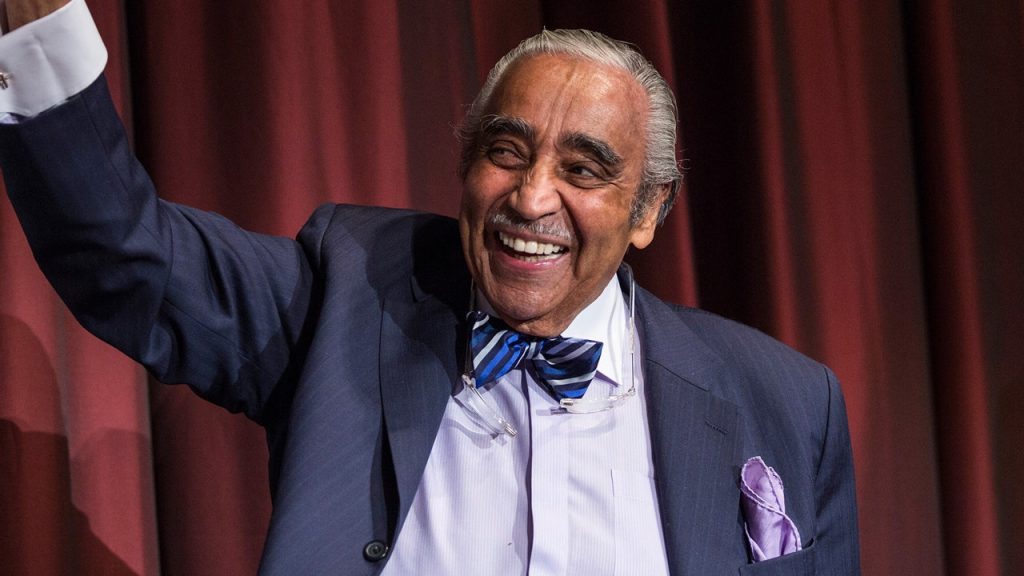Former U.S. Representative Charlie Rangel, a notable figure in American politics and an icon of the Democratic Party, passed away on Memorial Day at the age of 94. With a career that spanned over four decades, Rangel was a key player in shaping legislative priorities in Congress, especially during his time as the chairman of the House Ways and Means Committee. His legacy is marked not only by significant policy contributions but also by a cautionary tale of ethical challenges that he faced, defining his later years.
| Article Subheadings |
|---|
| 1) Early Life and Military Service |
| 2) Entry into Politics |
| 3) The Ethics Scandal |
| 4) Lasting Contributions |
| 5) Legacy and Impact |
Early Life and Military Service
Born on June 11, 1930, in New York City, Charlie Rangel grew up in a poor neighborhood of Harlem. His childhood was marked by struggles but infused with determination. Rangel attended New York University, but was drafted into the Army before completing his education. He served during the Korean War, where he displayed remarkable heroism. Rangel was wounded in battle, receiving both the Purple Heart and the Bronze Star for bravery. His experiences in the military not only shaped his character but also instilled a lifelong commitment to public service, particularly towards veterans and underserved communities.
Entry into Politics
Rangel’s political career began in 1970 when he was elected to represent New York’s 15th congressional district in the House of Representatives. His early years in Congress were marked by a focus on social justice, civil rights, and economic equity. As a founding member of the Congressional Black Caucus, Rangel fought tirelessly for the rights and needs of the African American community and worked on various initiatives that aimed to elevate marginalized groups. He quickly gained prominence within the Democratic Party, leading to his eventual appointment as the chairman of the powerful Ways and Means Committee, where he played a pivotal role in shaping healthcare and tax policy.
The Ethics Scandal
Despite his consequential contributions, Rangel’s legacy became overshadowed by a significant ethics scandal that unfolded between 2008 and 2010. It was discovered that Rangel had used his position to solicit donations for a city college in his name and subsequently failed to report substantial income from a villa he owned in the Dominican Republic. Additionally, he faced criticism for misusing a rent-controlled apartment as a campaign office. Rangel’s ethical missteps culminated in a censure by the House of Representatives — the first in 27 years. This period was particularly tumultuous for Rangel, who struggled to reconcile his past achievements with the stain of the scandal.
Lasting Contributions
Despite adversity, Rangel’s influence in politics remained significant until the end of his tenure. His work on the Affordable Care Act and his advocacy for veterans continued to resonate during his later years. Rangel often reflected on the importance of public service and remained active in various community initiatives, demonstrating a commitment to the values he espoused throughout his political career. His 2008 autobiography, “And I Haven’t Had a Bad Day Since,” chronicles his remarkable journey, emphasizing resilience and the power of hope. This book provided insight into his life, struggles, and perspectives, offering lessons for future generations.
Legacy and Impact
Rangel’s passing on Memorial Day serves as a poignant reminder of his significant contributions not only as a lawmaker but also as a veteran who dedicated his life to serving his country. He has left behind a complex legacy filled with both remarkable achievements and cautionary tales about accountability in public office. His career spanned periods of profound change in American society, and he played a crucial role in advocating for equality in healthcare, education, and civil rights. Rangel’s legacy will undoubtedly influence future leaders and serve as a reminder of the importance of integrity in public service.
| No. | Key Points |
|---|---|
| 1 | Charlie Rangel served in the U.S. House of Representatives for over four decades. |
| 2 | His military service during the Korean War substantially influenced his commitment to public service. |
| 3 | Rangel was involved in a highly publicized ethics scandal, culminating in his censure by the House. |
| 4 | Despite controversies, he continued to influence policy, particularly in health care and veterans’ rights. |
| 5 | Rangel’s legacy highlights the challenges and responsibilities of public office. |
Summary
The life and career of Charlie Rangel offer significant insights into both the triumphs and tribulations of public service in America. From his early life in Harlem to becoming one of the most influential lawmakers, Rangel’s journey is marked by accomplishments that have shaped modern legislation. His ethical challenges remind us that accountability is essential in leadership roles. As society reflects on his legacy, Rangel’s story continues to inspire future generations in their pursuit of justice and equality.
Frequently Asked Questions
Question: What were Charlie Rangel’s main contributions in Congress?
Rangel was instrumental in shaping key legislation, particularly in health care reform through the Affordable Care Act, and he advocated for veterans’ rights and social justice throughout his career.
Question: What is the significance of Rangel’s ethics scandal?
The scandal serves as a critical example of the ethical standards expected from public officials, as Rangel faced censure, which underscored the importance of accountability in public service.
Question: How did Rangel’s military service influence his political career?
Rangel’s experiences in the Korean War instilled a sense of duty and commitment to underserved communities, shaping his advocacy and legislative priorities throughout his time in Congress.


